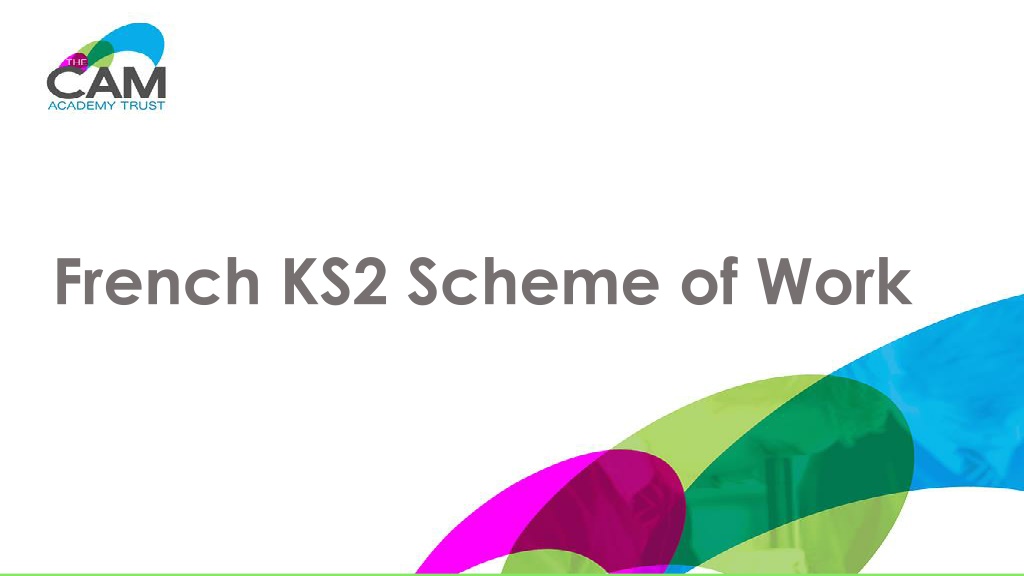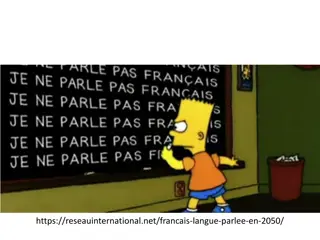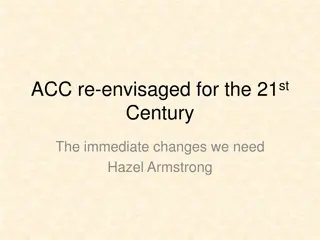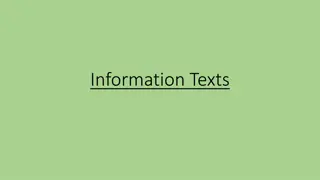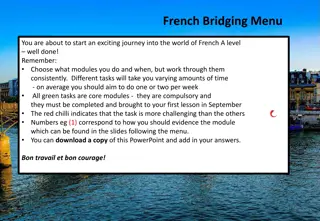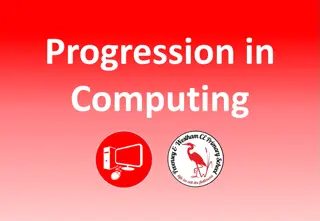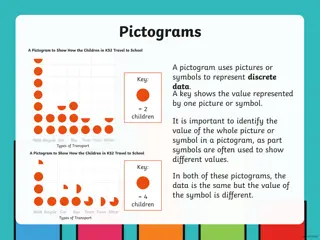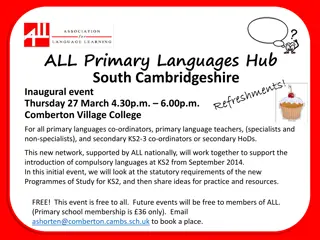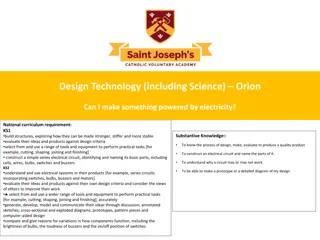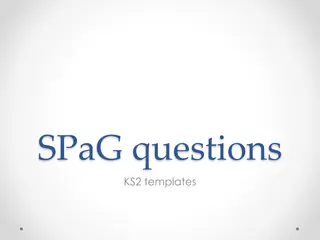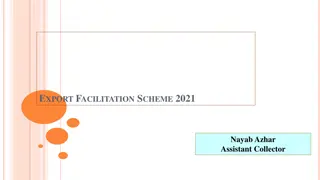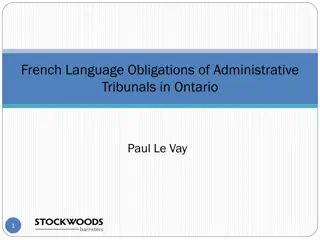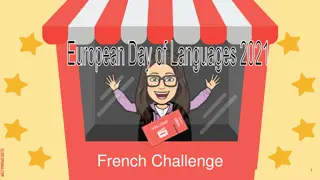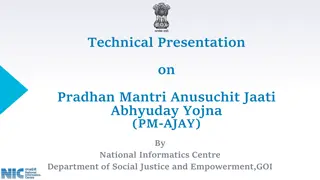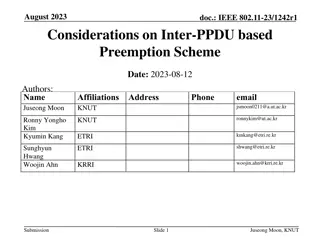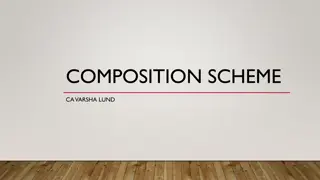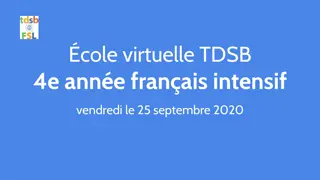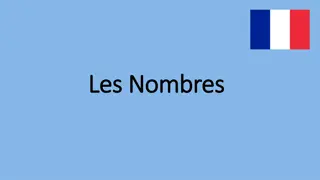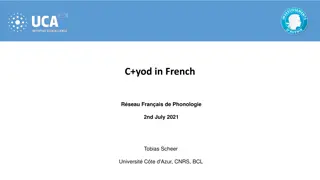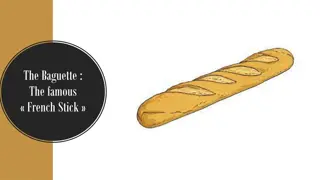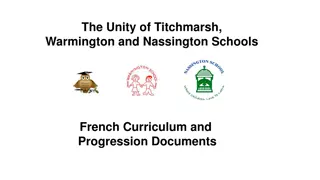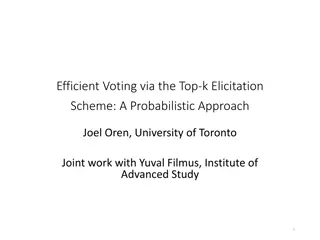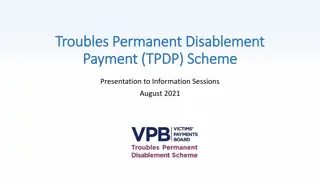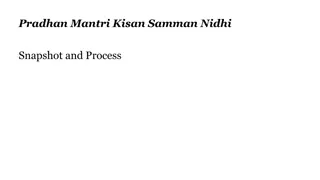French KS2 Scheme of Work Overview for Years 3/4
Explore the detailed French KS2 scheme of work overview for Years 3/4, covering vocabulary, grammar, phonics, and key concepts such as verb usage, adjectives, greetings, and more. The curriculum includes topics like communication, culture, describing oneself, talking about possessions, and activities to enhance language skills through listening, reading, and speaking exercises.
Download Presentation

Please find below an Image/Link to download the presentation.
The content on the website is provided AS IS for your information and personal use only. It may not be sold, licensed, or shared on other websites without obtaining consent from the author. Download presentation by click this link. If you encounter any issues during the download, it is possible that the publisher has removed the file from their server.
E N D
Presentation Transcript
Vocabulary and contexts are different in the Rouge and Jaune years; grammar and phonics are the same. French Y3/4 scheme of work overview: Term 1 Context, Communication, Culture Unit 1 (W1-7) and others in class in Haiti and in France he is il est she is elle est it is, it s c est Adjective agreement for masculine/feminine (as complement to verb) Yes/no questions with raised intonation Unit 2 (W8-12) and others have at home with friends I have j ai you have tu as he has il a she has elle a Indefinite, singular articles and gender PHONICS National Curriculum PoS End of Unit SSC - Sound-symbol correspondence UNIT Key ideas (GRAMMAR) VOCABULARY Describing me Talking about being Essential verb: to be, being TRE I am je suis you are tu es I can respond confidently to greetings and register (L1) match target SSC sounds to print (L2) sound out new words with target SSC (R3) listen and join in with simple songs and rhymes (L1/R2) listen and read simple sentences and show understanding (L1/R1) say short sentences to describe people (S2/3) ask and answer simple yes/no questions about being (S1(a)/G4) use regular singular m/f adjectives after tre(G3) Vowels [a] [e] [i] [o] [u] Simple greetings Silent final consonants Verb tre [SFC] Range of adjectives t, s, d Days of the week SSC [an/en] SSC closed [eu] Saying what I Talking about having Essential verb: to have, having AVOIR Verb avoir Range of singular masculine and feminine nouns I can listen and read simple sentences and show understanding (L1/R1) match target SSC sounds to print (L2) sound out new words with target SSC (R3) say short sentences to say what I and others have (S2/3) ask and answer simple questions to identify things and say what I and others have (S1(a)/G4) write memory (W1), adapt (W2) use singular m/f nouns with indefinite articles (G1) Liaison (t) SSC [ch] SSC [on] SSC [au/eau/o] SSC [ou] [u] Talking about identifying C est un/une Intonation questions with quoi ? Revisit key ideas Revisit SSC Unit 3 (W13-14) Revision Christmas Revisit vocabulary show evidence of L1, L2, R1, R3, S1(a), S2, W1, G1, G3, G4 listen and join in with simple songs and rhymes (L1/R2)
Vocabulary and contexts are different in the Rouge and Jaune years; grammar and phonics are the same. French Y3/4 scheme of work overview: Term 2 Context, Communication, Culture Unit 4 (W1-5) others do Infinitive regular ER verbs (singular) Definite articles le, la, l Talking about possession Possessive adjectives mon, ma, ton, ta de for possession PHONICS National Curriculum PoS End of Unit SSC - Sound-symbol correspondence UNIT Key ideas (GRAMMAR) VOCABULARY Saying what I and Talking about doing I can match target SSC sounds to print (L2) sound out new words with target SSC (R3) listen and read simple sentences and show understanding (L1/R1) say short sentences to describe actions (S2/3) ask and answer simple yes/no questions about doing (S1(a)/G4) use singular m/f nouns with definite articles and possessive adjectives (G2) use regular singular m/f adjectives after tre (G3) SSC [ ] [er] Range of regular ER SSC [ez] & et (and) verbs SSC open [eu] Family members in class at home Menton carnival SSC [ ] [ ] Range of nouns, adjectives and adverbs French club at home Nice carnival Saying what I and others like Unit 5 (W6-7) Talking about liking, preferring Essential verb: to like AIMER, to prefer PR F RER Joining ideas together Conjunctions et, mais, aussi Range of regular ER verbs Range of singular masculine and feminine nouns I can listen and read simple sentences and show understanding (L1/R1) match target SSC sounds to print (L2) sound out new words with target SSC (R3) say short sentences to say what I and others like (S1(b)/S2/3) ask and answer simple questions to say what I and others like (S1(a)/G4) write from memory (W1), adapt (W2), describe things, actions (W3) use singular m/f nouns with definite articles (G2), connectives (G5) SSC [ai] SSC [oi] family & friends at home family & friends travelling Liaison (s), (x) SSC [(a)in] Unit 6 (W8-9) Saying how many and describing things my monster Talking about more than one Essential verb: there is/are il y a Plural indefinite article des Regular plural marking on nouns [-s] Numbers 1-12 Parts of the body (Jaune only) ask and answer simple questions to say how many things there are (S1(a)/G4) use singular and plural m/f nouns with indefinite articles (G2) Revisit SSC Unit 7 (W10-11) Revision Easter Revisit key ideas Revisit vocabulary show evidence of L1, L2, R1, R3, S1(a), S2, W1, G1, G2, G3, G4 listen and join in with simple songs and rhymes (L1/R2)
Vocabulary and contexts are different in the Rouge and Jaune years; grammar and phonics are the same. French Y3/4 scheme of work overview: Term 3 Context, Communication, Culture Unit 8 (W1-6) and people Postnominal adjective agreement Subject pronouns il, elle meaning it Noun + pr f r (e) Avoir meaning be for age and states PHONICS National Curriculum PoS End of Unit SSC - Sound-symbol correspondence UNIT Key ideas (GRAMMAR) VOCABULARY Describing things Talking about being (2) I can listen and read simple sentences and show understanding (L1/R1) match target SSC sounds to print (L2) sound out new words with target SSC (R3) say short sentences to describe things and people (S2/3) ask and answer simple information questions about what things are like and when (S1(a)/G4) use singular m/f nouns with definite & indefinite articles, and possessive adjectives (G2) use regular singular m/f adjectives after tre (G3) use a dictionary (R5) Silent final e [Sfe] Range of nouns SSC [ ], soft [c] Range of adjectives SSC [ien] Months of the year (J) Mother s day at the zoo Tintin favourites SSC [qu] SSC [j], soft [g] favourites birthdays Unit 9 (W7-9) Expressing likes and saying what I and others do Talking about liking doing 2-verb structures: AIMER, D TESTER + infinitive Plural definite article les Range of regular ER verbs Please, thank you, you re welcome I can listen and read simple sentences and show understanding (L1/R1) match target SSC sounds to print (L2) sound out new words with target SSC (R3) say short sentences to say what I and others like and like doing (S1(b)/S2/3) ask and answer simple questions to say what I and others like and like doing (S1(a)/G4) write from memory (W1), describe actions, things (W3) use plural m/f nouns with definite articles (G2) SSC [-tion] SSC [r] at school friendship at school end of term show Assessments Revisit SSC Unit 10 (W10-11) Unit 11 (W12-13) Revisit key ideas Revisit vocabulary show evidence of L1, L2, R1, R3, S1(a), S2, S3, W1, G2, G3, G4 Revisit SSC The Hungry Caterpillar Un po me Revisit key ideas Revisit vocabulary listen and join in with simple songs and rhymes (L1/R2) appreciate stories, songs, poems and rhymes in the language (R2), understand new words (R4), adapt (W2) use a dictionary (R5)
Vocabulary and contexts are different in the Bleu and Vert years; grammar and phonics are the same. French Y5/6 scheme of work overview: Term 1 PHONICS Context, Communication, Culture National Curriculum PoS End of Unit SSC - Sound-symbol correspondence UNIT Key ideas (GRAMMAR) VOCABULARY Unit 1 (W1-7) Describing me and others (B) back to school in France teachers dates, birthdays Talking about being (we, you (all), they) Essential verb: to be, being TRE we are nous sommes you (all) are vous tes they are (m) ils sont they are (f) elles sont Adjective agreement for m/f plural (as complement to verb) raised intonation + WH-word questions I can transcribe (L2) and sound out (R3) new words with target SSC listen and read sentences and show understanding (L1/R1) say short sentences to describe people (S2/3) ask and answer simple yes/no questions about being (S1(a)/G4) write from memory (W1), adapt (W2) and describe people (W3) use regular singular and plural m/f adjectives after tre (G3) and time adverbs (G5) Silent final consonants [SFC] Simple greetings t, s, d, x Verb tre Liaison (t), (s) Range of SSC [a] vs [an/en/am/em] adjectives Interactions (V) back to school (Haiti) online exchange dates, festivals and concerts SSC [i] vs [(a)in/im] Numbers 16-31 SSC [u] vs [ou] Time adverbs SSC [on/om] SSC closed [eu[ vs open [eu] Unit 2 (W8-12) Saying what I and others have (B) in school comparing schools and homes physical description Interactions (V) describing town/village comparing physical description (celebrities) Talking about having Essential verb: to have, having AVOIR we have nous avons you (all) have vous avez they have (m) ils ont they have (f) elles ont Pre- and postnominal adjectives Verb avoir Range of singular and plural m/f nouns places in town (V) items at home (B) place prepositions (V) adjectives for face and hair I can listen and read sentences and show understanding (L1/R1) match target SSC sounds to print (L2) sound out new words with target SSC (R3) say short sentences to say what I and others have (S2/3) write memory (W1), adapt (W2) use singular and plural m/f nouns (G2) with indefinite and definite articles (G1) use prepositions of place (G5) SFe SSC [(e)au/o] Liaison SSC [ch] Revisit SSC Unit 3 (W13-14) Revision Christmas in Haiti (B), Canada (V) Revisit key ideas Revisit vocabulary show evidence of L1, L2, R1, R3, S1(a), S2, W1, G1, G3, G4 listen and join in with simple songs and rhymes (L1/R2)
Vocabulary and contexts are different in the Bleu and Vert years; grammar and phonics are the same. French Y5/6 scheme of work overview: Term 2 PHONICS Context, Communication, Culture National Curriculum PoS End of Unit SSC - Sound-symbol correspondence UNIT Key ideas (GRAMMAR) VOCABULARY Unit 4 (W1-6) Saying what I and others do Christmas activities New Year in France and Ha ti 1stJanuary in Ha ti La F te des Rois Talking about doing (we, you (all), they) regular ER verbs (plural) des + plural nouns (-s) plural nouns (-eux/aux, -al aux) Est-ce que questions negation: n /ne pas negation: il n y a pas de I can transcribe (L2) and sound out (R3) new words with target SSC listen and read sentences and show understanding (L1/R1) say short sentences to say what people do (plural persons) (S2/3) ask and answer longer yes/no questions about doing (S1(a)/G4) write from memory (W1), adapt (W2) and describe actions (W3) use plural ER verb forms in questions, in affirmative and negative statements (G4) I can listen and read sentences and show understanding (L1/R1) match target SSC sounds to print (L2) sound out new words with target SSC (R3) say short sentences to say where I and others go (S2/3) write from memory (W1), adapt (W2) and describe actions (W3) use prepositions of place (G5) accurately with articles (G1) show evidence of L1, L2, R1, R3, S1(a), S2, W1, G1, G2, G4, G5 listen and join in with simple songs and rhymes (L1/R2) SSC [ ] [er] Range of ER SSC [ez] & et (and) verbs SSC [ ] [ ] Range of high- SFe frequency nouns SSC [oi] related to festivals and celebrations Activities in school Qu bec Carnival La F te des Lumi res La Chandeleur Mardi gras Adverbs of frequency Unit 5 (W7-9) Saying where you re going and what there is there describing school in Canada Talking about going Essential verb: to go, going ALLER I go je vais you go tu vas he goes il va she goes elle va Simple and continuous present O est-ce que questions Preposition (at, in, to) Verb aller Numbers 1-31 (revisit) cardinal points nouns and proper nouns for places SSC [oi] & SSC [(a)in] SSC [ai] & SSC [(a)in] SSC [ai] & SSC [a] describing town/village in Ha ti Revisit SSC Unit 6 (W10-11) Revision / assessment Easter Revisit key ideas Revisit vocabulary
Vocabulary and contexts are different in the Bleu and Vert years; grammar and phonics are the same. French Y5/6 scheme of work overview: Term 3 PHONICS Context, Communication, Culture National Curriculum PoS End of Unit SSC - Sound-symbol correspondence UNIT Key ideas (GRAMMAR) VOCABULARY Unit 7 (W1-6) Saying what I and others do activities at home a surprise party weather sports and instruments Talking about doing (I, you, s/he) Essential verb: to do, make FAIRE I do, make je fais you do, make tu fais he does Il fait she does elle fait Il fait (weather) faire de (sports), jouer (sports) jouer de (instruments) Est-ce que questions + WH- words I can transcribe (L2) and sound out (R3) new words with target SSC listen and read sentences and show understanding (L1/R1) say short and some longer sentences to describe actions (S2/3) ask and answer short and longer information questions (S1(a)/G4) Write from memory (W1), adapt (W2) and describe weather and actions (W3) use singular forms of faire in questions and statements (G4) Silent final consonants Verb faire (singular) [SFC] t, s, d, x or SFe activity nouns SSC [ ] (and soft c ) seasons SSC [-tion] sports SSC [-ien] adjectives at the kite festival a weekend at home sports and instruments SSC [-s-] Numbers 16-31 SSC [qu] Time adverbs Unit 8 (W7-9) Expressing likes and actions what we do what we like / dislike doing food for a picnic Talking about doing (we, you (all), they) Essential verb: to have, having FAIRE we do, make nous faisons you (all) do, make vous faites they do, make (m) ils font they do, make elles font 2-verb structures: vouloir (veux, veut, voudrais, voudrait) Partitivedu, de la, de l , des Revisit key ideas Verb faire (plural) Verb vouloir (singular) food and drink I can listen and read sentences and show understanding (L1/R1) match target SSC sounds to print (L2) sound out new words with target SSC (R3) say short and longer sentences to say what I and others do, like/dislike doing and want to do (S2/3) write memory (W1), adapt (W2), describe actions, likes and dislikes, wants (W3) use partitive (G5) accurately with articles (G1) SSC [j] (and soft g ) SSC [h] Revisit several SSC what I want / would like to do at a caf Revisit SSC show evidence of L1, L2, R1, R3, S1(a), S2, S3, W1, W2, W3, G1, G4, G5 listen and join in with simple songs and rhymes (L1/R2) appreciate stories, songs, poems and rhymes in the language (R2), understand new words (R4), adapt (W2) use a dictionary (R5) Unit 9 (W10-13) Revision/assessment Ton Christ est juif poem Dans Paris poem Revisit vocabulary
Key L1 L2 S1(a) S1(b) S1(c) S2 S3 R1 R2 R3 R4 R5 W1 W2 W3 G1 G2 G3 G4 G5 KS2 Programme of Study Listen attentively and show understanding by joining in and responding Link the spelling, sound and meaning of words Ask and answer questions Express opinions and respond to those of others Ask for clarification and help Speak in sentences Describe people, places, things and actions orally (to a range of audiences) Read and show understanding of words, phrases and simple texts Appreciate stories, songs, poems and rhymes in the language Read aloud with accurate pronunciation Understand new words that are introduced into familiar written material Use a dictionary Write words and phrases from memory Adapt phrases to create new sentences Describe people, places, things and actions in writing Gender of nouns - definite and indefinite articles Singular and plural forms of nouns Adjectives (place and agreement) Conjugation of key verbs (and making verbs negative) Connectives and qualifiers, adverbs of time, prepositions of place
